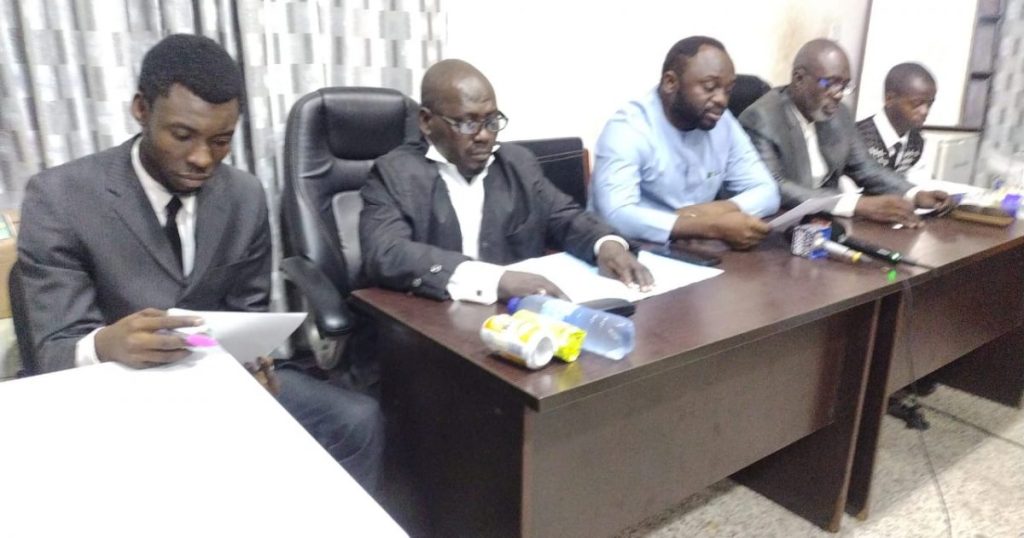The Islamic Movement in Nigeria (IMN), widely known as the Shi’ites, has issued a stern warning to the Federal Government and the Nigerian Army, demanding the immediate release of their detained members or face legal repercussions. The group alleges that over 274 of their members, including at least 60 minors, were unjustly arrested and detained following a clash with the Nigerian Army during a peaceful procession commemorating International Quds Day on March 28, 2025. The IMN’s legal team, led by Bala Dakum and Yushau Uthman, asserts that the arrests and detentions are unlawful and violate fundamental human rights, particularly the rights of the children involved. They emphasize their commitment to pursuing legal avenues to secure the release of their members and hold the responsible parties accountable.
The IMN’s legal team recounts the events of March 28, 2025, alleging that their clients, while peacefully participating in the International Quds Day procession in Abuja, were unprovokedly attacked by armed soldiers. They claim that the soldiers opened fire on the unarmed procession, resulting in the death of approximately 26 individuals and leaving over 30 others with severe injuries. The legal team strongly condemns the alleged actions of the soldiers, characterizing them as inhumane, callous, and barbaric. They further allege that the surviving members of the procession were subsequently arrested and handed over to the Nigeria Police Force, where they were subjected to harsh and dehumanizing conditions at the now-defunct SARS facility in Abattoir, Garki, Abuja.
The legal team raises serious concerns regarding the treatment of the detained individuals, stating that they were coerced into signing statements without legal representation, in violation of the Administration of Criminal Justice Act (ACJA) 2015. Of particular concern is the detention of over 60 minors, who are allegedly being held in the same cells as adults accused of serious crimes. This, they argue, constitutes a blatant violation of both the ACJA 2015 and the Child Rights Act. The IMN’s legal representatives emphasize the vulnerability of these children and the potential psychological trauma they may be enduring as a result of their detention. They demand the immediate release of all minors and call for an investigation into the circumstances surrounding their arrest and detention.
Adding to the gravity of the situation, the IMN’s legal team reveals that the bodies of those killed during the alleged attack have yet to be released by the authorities. They claim the bodies are being held in undisclosed hospitals, preventing the families from performing burial rites according to Islamic tradition. This, they argue, is a further violation of their rights and adds to the emotional distress of the bereaved families. The IMN’s legal team insists on the immediate release of the bodies, asserting that the deceased individuals cannot be investigated or tried post-mortem. They reiterate their commitment to upholding Islamic burial rites and will pursue legal action to ensure the proper handling of the deceased.
The IMN’s legal team has issued a clear ultimatum to the Federal Government and the Nigerian Army: release the detained individuals, including the minors, or face legal action. They emphasize their commitment to pursuing all available legal avenues to secure the release of their members and hold the responsible parties accountable for the alleged human rights violations. The legal team stresses that they have successfully challenged similar actions by the authorities in the past, obtaining court orders for the release of bodies withheld by the police. They express confidence in their ability to achieve a similar outcome in this case and remain resolute in their pursuit of justice.
The IMN’s demands highlight the ongoing tensions between the group and the Nigerian government. The incident on March 28, 2025, represents another chapter in a long and complex history of clashes between the two entities. The IMN’s accusations of excessive force and human rights violations by the Nigerian Army raise serious concerns about the government’s handling of protests and the protection of fundamental rights. The group’s commitment to pursuing legal action underscores their determination to hold the government accountable and to secure justice for their members. The outcome of this legal battle could have significant implications for the future relationship between the IMN and the Nigerian government.


